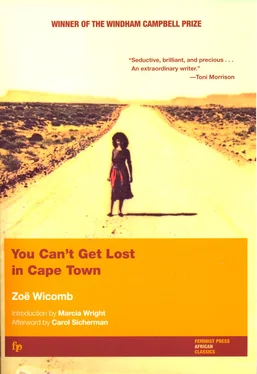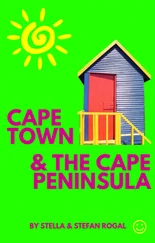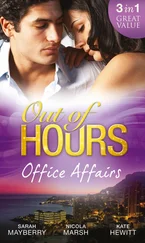Curled up on the table, the cat fixed a suspicious eye on her tin plate catching the water under the beam.
So much rain Kitty, I addressed the cat, allowing the brine in my eyes to reach perfect roundness before the drops tumbled and splattered ignominiously on my cheeks. The water gurgled in the sinkpipes, the drone outside grew deeper and the cat, encouraged by the noise and my unusually friendly tone, purred loudly. So much rain, I concluded, and I’m in the wrong bloody hemisphere.
But heroines must cry, so I allowed the tears to flow freely although I had just lost interest in crying. Another drop on the beam pearled into perfection and in that second of the spreading light I came to a decision which, after all, followed logically from my remark to the cat. I would go home. I could no longer avoid a visit.
I shut my eyes and under the purr of Kitty travelled south where the African sun swelled visibly in the sky and in kinship curling waves of heat bounced off the galvanised-iron roof. But oh, when it rained the roof sang in clear soprano. On the floor the enamelled pots caught the leaks from the roof in concert. Out we ran to feel the silver trails of fine-grained sand between our toes so that new puddles grew a crushed orange under our feet. So many children clad in the peaked hoods of sugar sacks folded into capes, our bodies bent to the slant of the rain. The rain warbled on our jute-woven backs. On the next day, with the sky rinsed blue and the red earth washed, the sun shot beams of bright yellow to swell the brittle sticks of vine. We lifted our faces to God’s spread hands. And he muttered through his beard, Honour thy mother and thy father so that thy days may be lengthened.
I do not, dear God, wish to lengthen my days. I wish to be turned into a drop of water now, before these very mirror eyes.
I start at a cry, ‘Mholo Boeti,’ behind me and turn to a woman whose face is eagerly lifted to the leafy entrance some yards away. Across the road, hovering on his bicycle like a bird on the wing, a Black man shouts through the foliage a long message in his language to her. The bicycle wobbles as he gesticulates, but he pedals furiously, back and forth to the sing-song of his tale. Fortunately the wire basket attached for the delivery of meat — for the sign on the basket declares Andries Brink to be the best butcher in the village — is empty.
The woman interjects with appreciative Ewe’s, but her face grows puzzled as the narrative unfolds. The messenger stops abruptly at the sound of a Boer’s voice calling from the stoep of the butcher’s on the corner. We turn to the flame-red hibiscus chalices that hide the form of the proprietor. ‘Kosie, gebruik jy alweer my tyd om to skinder. Waarom moet julle kaffers tog so skree. So ’n geraas in die hitte gee ’n beskawe mens ’n kopseer.’
Kosie wheels off on his bike with an unrestrained, ‘Ewe Sisi, Ewe,’ and leaves the woman and her friends to take up the matter in loud dispute. Someone argues passionately, gravely, so that I speculate on topics like the death of the doctor or the assassination of the magistrate. But then a woman from the group rises, for the debaters have moved together. She twists her buttocks in a mocking dance, throws back her head and projects malt-dark laughter into the heat. I stare unashamedly into the pink flesh of her mouth rimmed by the polished plum of her lips. The mouth remains open as the sound dribbles away and I pull vigorously at the tips of my fingers until the joints crack.
I do not know what they are saying. Their gestures, the careless laughter and the pensive nods, tell me less than nothing.
The girls immersed in the romance of a blonde heroine shut their book with theatrical exasperation. ‘Such a noise gives you a headache,’ one whispers loudly. The other traps me with her eyes and inclines her head with a twitch in the direction of the woman who has just stopped laughing. My facial muscles tighten, but the girl’s eyes persist. Am I drawn into the kraal of complicity? The stranger’s glasses are trained on me. I think of jumping up, protesting, when he calmly addresses the group in Zulu. The argument gains new momentum; the dancer looks chastened and beats her chest while others shout simultaneously. So that a head pops over the wall behind us and says cheekily in Afrikaans, ‘Shut up you lot. This is a surgery, not a shebeen.’ Someone shouts back, ‘To hell with that; where’s the old bugger?’ and an old woman complains, ‘Don’t you speak to your elders like that,’ but the girl throws her head back and laughs raucously and drops behind the high wall. There must be a step-ladder on the other side for her poise is perfect. She does not disturb the unripe bunches of tight green grapes hanging lightly like ornaments above her shoulder.
A woman addresses a remark in Zulu to the dust-covered stranger and he replies, itemising on his five fingers, and as he strikes his thumb in final iteration, I see who he is. Does he recognise me?
I am once again engulfed by the loneliness of childhood and must swallow hard to prevent the tears from beading in the corners of my eyes. How I hugged my knees and listened to the afternoon wind piping mournfully through the cracks in the old school door. There, alone, I repossessed the ignominious day. There the yearning stretched with the sound of the wind, grew wide as the world and the random words in my head jostled just beneath the surface of clarity.
There I found the letter. He had placed it conspicuously in a crack in the door, presumably just before I crept in. Yes, the letter said, as I had probably guessed, he, Henry Hendrikse, loved me. Surprise swiftly converted into prescience. yes, that was what the wind had murmured through the cracks. He would like, he wrote, to press his lips against mine which were soft as velvet. I was surprised at his ability to think of love in such concrete terms. Could he imagine his hands travelling over my folds of fat? But he did not mention my fat, my squishy breasts. Instead he said my breasts were two fawns, twins of a gazelle, that feed among the lilies. But that I think came later, weeks later, in a letter, for we never spoke. (Except the last time, but I do not want to think about that.) All through that summer we composed delicious letters of love. Secret, for Father said I was too young to think of boys; besides, Henry Hendrikse, I had heard him say many times, was almost pure kaffir. We, the Shentons, had an ancestor, an Englishman whose memory must be kept sacred, must not be defiled by associating with those beneath us. We were respectable Coloureds.
It was a summer’s evening, days before we were both to leave for high school. Henry went to the nearest Afrikaans school at Nuwerus, a place of waving grass, or so his letters said. The heat had dropped and the sky was a washed purple of dying light when he found me behind the chicken run. He said nothing but placed his hands on either side of my head and pressed his lips on mine. Then with his tongue he forced open my lips with such a rush of saliva that I thought he had spat in my mouth, that his contempt for me could no longer be contained. I drew away and ran off pressing my palms against my ears lest he say something offensive.
At home Father had laid the table. I lingered over the Sunday bowl of tinned peaches and cream, thick cream that Father stole from the butter churn for me. The cream curled through the clear syrup making its marbled pattern around the island of peach halves. In my mouth they fused exquisitely into a fountain of pleasure so that I held each mouthful with cheeks bulging indecently. Should a kiss not have been like that? I sank my teeth into the flesh of the peach. Perhaps we hated each other; perhaps that was why the kiss had been a failure. But no, his letter said the next day, the kiss was divine ambrosia, and so stirring the memory of peach syrup and cream, I was once again in love.
Читать дальше












